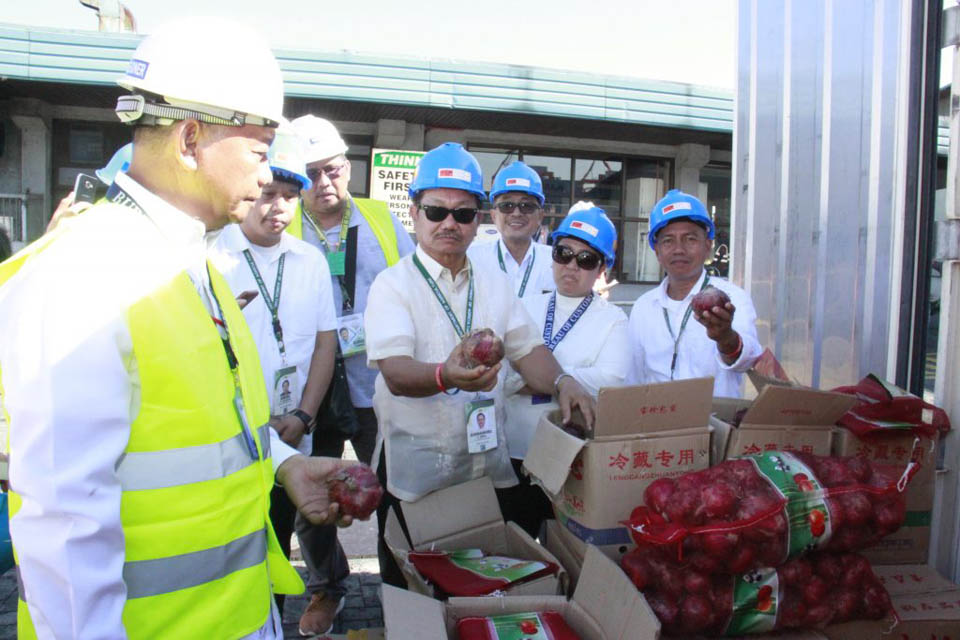
The Department of Agriculture (DA) has requested the Bureau of Customs (BOC) to place under “Alert Status” all shipments declared to contain agricultural products, following the recent discovery of 17 containers vans filled with smuggled onions from China at the Manila International Container Port (MICP) on April 23, 2018.
“Except for institutional legit importers like San Miguel Corp and Purefoods, we have requested BOC to be on the lookout for all incoming agri shipments. Our request covers all ports around the country,” Secretary Manny Piñol announced.
Under the “Alert Status” enforcement, all containers shipped to MICP and other ports will undergo a mandatory inspection and stripping of containers.
On Monday, Piñol together with the BOC team, Agriculture Undersecretary for Operations Ariel T. Cayanan, and Bureau of Plant Industry (BPI) Director George Culaste, and a BPI Quarantine officer assigned at the MICP, inspected four of the 17 containers believed to contain smuggled onions.
Each container, which declared to be filled with apples, contained 35 metric tons (MT) onions with an estimated value of P2 million.
“We received reports last week that there were 10 containers containing smuggled onions, but during our inspection an additional seven containers were identified,” the agri chief announced.
“The shipments belong to consignees from China who declared the shipments as fresh apples. These are Kasaligan International (2 containers), SKYROCKET Trading (4 containers), and Epitome International Trading (4 containers),” Piñol added.
“Sa X-Ray ng MICP, pwedeng lumusot siya as apple, kasi halos pareho ng laki at itsura,” he said.
Piñol stressed that apples have zero percent tariff while onions are imposed with 35 percent.
DA ordered cancellation of accreditation of the identified consignees and ordered the immediate quashing of the seized products.
“We will have to destroy it because it does not have Sanitary and Phytosanitary Certificate (SPS) import permits and might pose serious risk in Philippine agriculture,” Piñol said. ### (Kristel Merle, DA-AFID)













